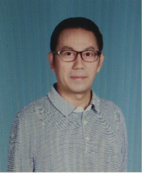Speaker: Yu Zhi (Renmin University of China)
Host: Qiu Bin (Southeast University)
Commentator: Qiu Bin (Southeast University)
Time: 9:00-11:00am
Date: September 27th, 2022 (Tuesday)
Tencent Meeting ID: 335 778 314
Abstract:
This report examines the impact of trade policy uncertainty on firms' import decisions. In the theoretical model, firms need to pay sunk costs for adopting a new imported input, and a reduction in the uncertainty of the import trade policy of one input will increase the import of this input (substitution effect) and the import of other inputs (scale effect).We use the process of China's accession to the WTO to demonstrate the above principles. Controlling for real tariffs, we find that the likelihood of a return to higher import tariffs (trade policy uncertainty) reduced China's imports of intermediate inputs prior to China's WTO accession. And this negative impact was significantly reduced after China's accession to the WTO, which is consistent with the reduction of trade policy uncertainty after China's accession to the WTO.At the same time, after China's accession to the WTO, the elasticity of the impact of actual tariffs on import volume has also increased, which means that companies have stronger expectations for the durability of actual tariffs, which also confirms the reduction of tariff uncertainty. We also found the aforementioned substitution effect and scale effect. Moreover, after China's accession to the WTO, due to the reduction of tariff uncertainty, firms are more likely to use inputs with higher tariff uncertainty before. The results of the regression analysis also show that more than three-quarters of the increase in input imports after China's accession to the WTO is due to the reduction of trade policy uncertainty (rather than the reduction of actual tariffs).
About Speaker:

Yu Zhi is a professor at the Business School of Renmin University of China, a Ph.D. in Finance from Renmin University of China, a Ph.D. in Economics from Georgetown University, a scholar of Shanghai "Pujiang Talent Program", an external expert of China Development Bank, and a researcher at the Collaborative Innovation Center of China (Shanghai) Pilot Free Trade Zone. His main research direction is international trade and international finance, and his academic articles have been published in the Journal of International Economics, International Economic Review, and other domestic and foreign academic journals.
Translated by: Wang Xuanyu
Reviewed by: Li Zhaoting

